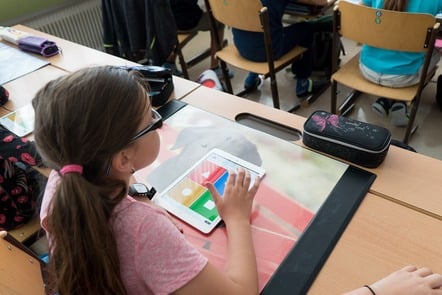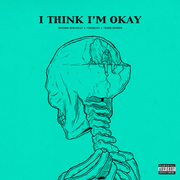Hot Songs Around The World
APT.
Rose & Bruno Mars 544 entries in 29 charts
Messy
Lola Young 251 entries in 24 charts
|
New York, NY (Top40 Charts) We live in the dynamic time of changes and improvements. All areas of human life undergo transformations, and it seems quite natural to bring something new to education. Traditional approaches are obsolete and inefficient, should be revised in order for educational institutions to keep up with time.
Academics come up with original ideas on how the learning process may be changed. In this article, experts from Pro-Papers have outlined the most interesting strategies and tips. Some of them may seem vague. The ways how these ideas may be combined with other methods, their Pros and cons should be studied more in detail. But that's okay. After all, we are dreaming here, and there is nothing wrong if we would get a little crazy.
- Teamwork and interdependence should become a basis for all educational processes.
- Allow young people to set their own quality criteria, choose the most suitable assignments and information channels.
- Do not state nakedly that each student will be proficient. Better explain what you will do to provide such result.
- Schools should be proud of their efficient learning models rather than loud names and history. This is the best way to show educational institutions in action instead of focusing on empty mascots.
- Students should choose places where they want to learn. For example, lectures may be held in a park or a cafe.
- Do not force learners to come to a class. Make attendance optional.
- Allow young people to use gadgets in the classroom.
- Stop assessing proficiency based on demographic data. Pay more attention to individual indicators.
- Ask the teachers in your school to outline the 10 most useful skills they have and the 10 most valuable things they know. Find patterns in answers and compare them with state standards.
- Purchase tablets which should be used at all lessons instead of textbooks and notebooks.
- Build a school with walls made of glass.
- Create a website where parents would check information on their kids' academic performance.
- Do not be afraid to admit your mistakes, accept the fact that some theory is wrong or some assignment is boring. Do not waste learner's time just because state standards force you to do so.
- Open your mind for advanced technologies, strive to create an educational space of the future, attract the best specialists and innovations.
- Do not encourage students to enroll in expensive, prestigious universities practicing outdated approaches and not providing the knowledge necessary to succeed in the modern world.
- Add gamification elements to an academic routine, allow junior learners to play more, stimulate their creativity, make learning fun and entertaining.
- Teach adolescents to conduct self-analysis, control their emotions and behavior, develop useful communication habits, create strong interpersonal relationships, undertake responsibility, and treat information they come across cautiously.
- Help senior students to set career goals, develop skills and competencies which may come in handy at a workplace, instill corporate values.
- Use artificial intelligence.
- Fund schools like promising startups which should produce human capital and benefit society.
- Treat the leading professors like rock stars. They should enjoy fame, money, sign profitable contracts, and participate in TV shows.
- Students should be accountable for underperformance. Find mild and fair ways to control their work, avoid offensive and humiliating punishments, provide polite and substantiated criticism, reprimand young people one-on-one rather than in front of a class.
- Make learners accountable to each other - not educators. For example, a group may work on a project without the teacher's support and provide a ready result when a task is accomplished.
- Education should cease to be a tedious duty and turn into an exciting adventure. Celebrate learning, and then scientists would be as popular as musicians and movie stars.
- Do not think that technology gives answers to all questions. Even though innovations are necessary in some situations, it is not worth introducing them mindlessly.
- Your grading system should start with 0 - not 100. This scale is much more objective.
- Budgets should be transparent. For example, educational institutions may publish financial reports on their websites. This information should be available to all learners, educators, and parents.
- Get rid of letter grades and standardized testing. Students should get more information on their mistakes and knowledge gaps.
- Stop oversimplifying course materials and allow young people to train their brains.
- Allow teachers to change policies and use authorial educational programs, provided that they lead students to uniform standards adopted at the state level.
- Ban scripted curricula and compile learning plans based on students' inquiries.
- Measure process rather than results, in-class activity rather than test scores. Encourage learners to be active, curious, ask questions, and influence the way how lessons are held.
- Evolve teaching instead of teaching evolution.
- Create a brand in education just like Apple did with gadgets, Coca-Cola - with sugar water, and Instagram - with social networks.
- Stop blaming educators for all students' failures.
- Exempt schools from state control. Governmental bodies know nothing about what teachers do at a front line.
- Assign a mentor for each student.
- Focus on developing thinking habits rather than transmitting knowledge.
- Teach young people to compile their own learning strategies.
- Invite parents, community members, and businesses to take part in the educational process.
|
Most read news of the week
|
























